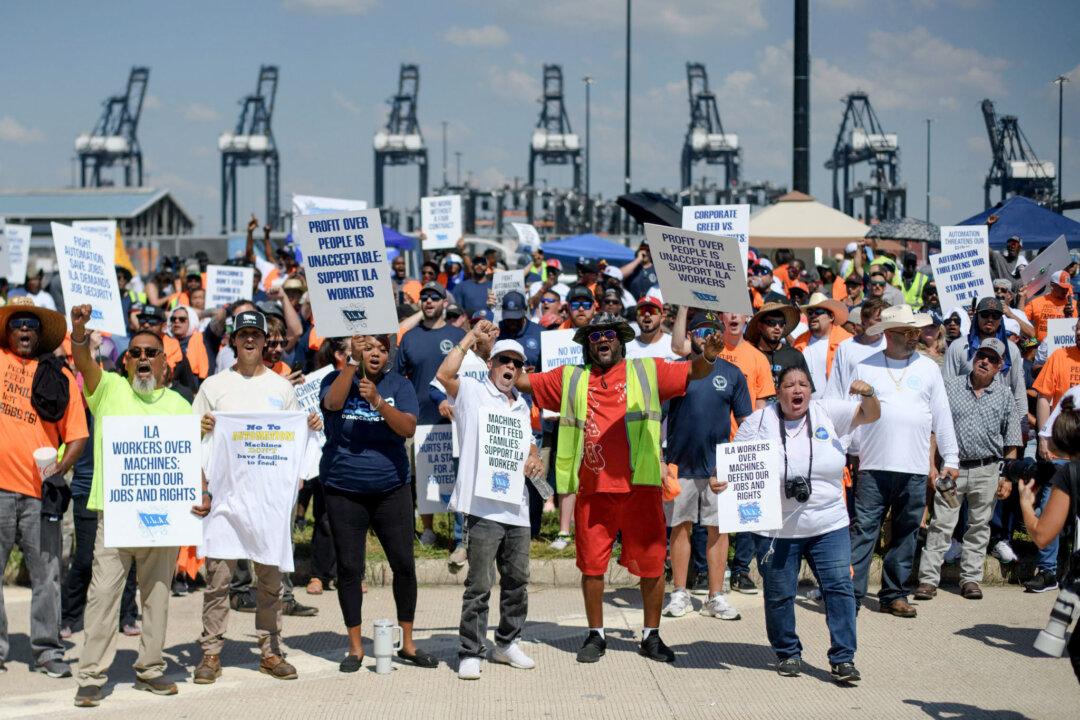The U.S. auto industry is urging the White House to take action after dockworkers at dozens of ports along the U.S. East and Gulf coasts went on strike for the first time in decades, saying that protracted labor action could cause shortages and supply chain problems.
“More than four million Americans working in the auto care industry count on the steady flow of automotive parts and products through our ports each day to do their jobs,” the Auto Care Association trade group’s president, Bill Hanvey, said in a statement.





